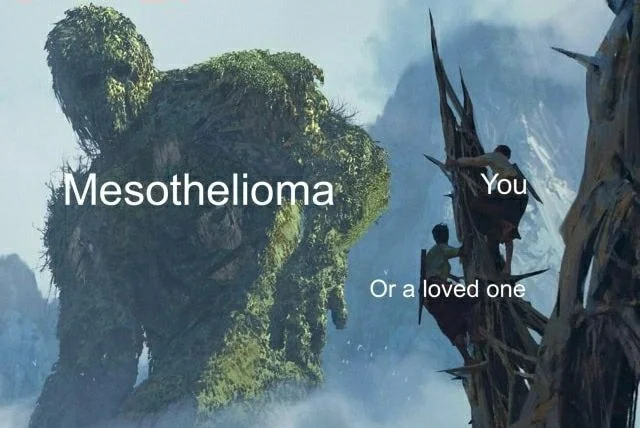The Neutrons in Hydrogen, Mesothelioma Meme Support Resources for Mesothelioma Patients
A number of programs and organizations provide support services for patients and their families. Although mesothelioma is a rare form of cancer, patients can often find similar experiences among fellow patients. A support group, such as the Meso Foundation, can be especially beneficial. Members can ask questions and share their experiences to help others living with the condition. The group also provides financial assistance to patients and their families.
Mesothelioma Diagnos
It’s difficult to process news of a mesothelioma diagnosis. Your loved ones may not know what to say or how to provide support. It’s easy to feel alone when facing cancer. Reaching out for support is important to avoid feeling alone and numb. Support groups can help you cope with the emotional and practical challenges that come with your diagnosis.
While there is no cure for mesothelioma, there are many resources available to patients and their families. Some of these guides provide information on symptoms and treatment options. For example, you can find a mesothelioma support group that matches your situation and needs. Alternatively, you can check out online forums or join the Meso Foundation’s newsletter to stay updated on the latest developments in the field.
Community-Based Transportation Services
Caretakers can use the support of their loved ones to help them get around while undergoing mesothelioma treatment. You may also find community-based transportation services in your area. Look in your yellow pages to find out how to use them. If you can’t find one locally, you can also check out programs specifically designed for cancer patients, such as the American Cancer Society’s Road to Recovery.
Those affected by mesothelioma may also find support from the Mesothelioma Research Foundation of America. The nonprofit organization offers free educational resources for mesothelioma patients and their families, as well as practical help. They fund mesothelioma research by providing grants for phase III Veglin clinical trials.
Organizations & Resources
Caregivers must maintain clinical, emotional, and physical support for their patient. This means gaining a variety of new skills. Some of these may include insurance considerations and caregiving techniques. The cancer patient may also require financial planning, as well as assistance with insurance claims and other financial issues. A good resource for caregivers is a free publication. There are also many organizations and resources available for patients and caregivers.
Medical expenses can be overwhelming for anyone dealing with cancer. While most people have some health insurance coverage, some people don’t. If you do not, there are many resources to help you pay for your care. Check with your doctor, medical social worker, and business office about your situation and eligibility for financial assistance. You can also contact nonprofit organizations that offer support to patients and their families in need.
General Hospitals
Cancer support groups often meet in general hospitals. These groups may not be available near you, but they may be accessible to patients and their caregivers by phone. Some support groups even meet virtually, which is beneficial for patients in remote locations. There are often multiple groups at one time, so you may need to try several before finding the right one for you. But the support you receive can be invaluable and you may even make lifelong friends.
If you can’t afford medical care, consider seeking legal advice. Mesothelioma attorneys can help you secure financial compensation for medical expenses. Depending on the type of cancer, you may be eligible for social security disability benefits. Likewise, if your mesothelioma was caused by asbestos exposure, you may qualify for compensation from the manufacturers and suppliers of the substance.
Cancer Treatment Centers
Finding lodging that fits your budget is often stressful. Don’t let your condition separate you from your family. Many cancer centers offer hospitality housing and specialized medical care. However, requirements vary between facilities. You may also need to seek help from outside organizations. For example, the ACS has a program that provides free transportation for patients and their families. These services are designed to help patients and their families get to specialized cancer treatment centers.
Final Words:
While visiting your loved one is not necessary, it is helpful to offer emotional support. While you may not have the right answers, being a sympathetic ear to answer questions is an invaluable service. Calling or texting your loved one periodically is also helpful. It will help them cope with their illness and maintain a quality of life. This is important for them to maintain a positive outlook.

